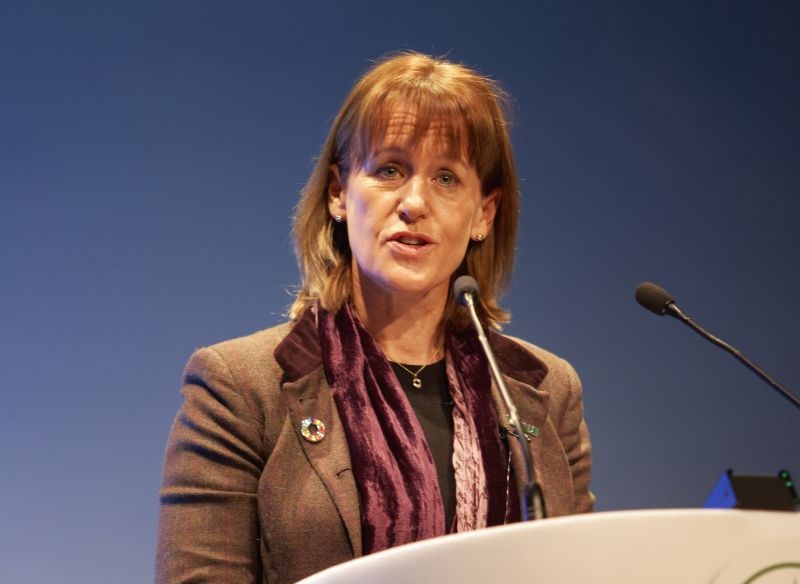
This week's votes and amendments on Theresa May's Brexit deal has done 'little to provide much-needed certainty' for the future of food and farming in Britain, the NFU has said.
The prime minister won the backing of parliament on Tuesday (29 January) to return to Brussels and re-negotiate the backstop with unspecified 'alternative arrangements'.
MPs also voted down the Cooper amendment designed to prevent parliament from taking steps to stop a 'no-deal' Brexit by extending the article 50 negotiating period in order to agree an alternative deal with the EU. This amendment was intended to create parliamentary time for MPs to legislate to prevent no deal.
However, a slim majority voted in favour of the Spelman amendment, which states that the UK will not leave the EU without a deal, but this is only advisory and has no legislative force.
Responding to the votes on various amendments in the House of Commons in the past couple of days, the NFU said that 'time is running out'.
The union is concerned that a 'no deal' Brexit would be 'catastrophic' for food production in Britain and that such a scenario could bring farms to the 'brink of collapse'.
For example, leaving the EU without a deal could mean a trade embargo is imposed on animals and animal products going to the EU which, along with punitive tariffs on all goods going into the EU, would severely restrict livestock farmers’ export markets.
Meanwhile, the potential for government to unilaterally lower import tariffs on food could lead to British farmers being undercut by food coming into the country which may have been produced to lower standards than is legally required of UK farmers.
NFU President, Minette Batters said: “Although it is encouraging that the majority of MPs opposed a no-deal scenario, no-deal cannot simply be wished away. An agreement negotiated between the EU and UK, and accepted by Parliament, must be reached urgently to protect the country’s ability to produce its own food and feed its people.
“The NFU will be assessing any deal against our six key principles agreed at an Extraordinary meeting of the NFU’s Council in December, which includes avoiding a no-deal and ensuring free and frictionless trade with our biggest trading partner.
“We are getting to crunch point now. British farming and food production, like the rest of the country, needs to see a deal in place so it can appropriately prepare for life after leaving the EU.”
Impacts of 'no deal'
There are several examples of the potential impacts a ‘no-deal’ Brexit could have on the British food and farming industry.
EU legislation could effectively result in a trade embargo on the export of UK animal-based products such as meat, eggs and dairy to the EU.
These products can only be imported by the EU from approved countries, and it could take months for such status to be granted to the UK.
The lamb industry would be particularly impacted. In 2017, 31% of domestic sheep meat production, the equivalent of 4.5million sheep, was exported and 94% was destined for the EU.
Export tariffs could be imposed on the 60% of UK food, feed and drink that go to the EU, increasing export tariffs to an average of 27% on chicken, 46% on lamb, 65% on beef, and range from €172 to €1,494 per tonne in pork.
It is likely that trade barriers will go up between the UK and EU which could limit the availability of many farm inputs such as veterinary medicines, fertilisers, plant protection products, machinery parts and animal feed.
Furthermore, as the EU will no longer recognise UK organic certification bodies, exports of organic products to the EU could be severely curtailed.
The sudden end of labour mobility from the EU could cause serious problems when it comes to securing the necessary labour to harvest and process UK produce, as well as in related roles such as carrying out veterinary inspections.
